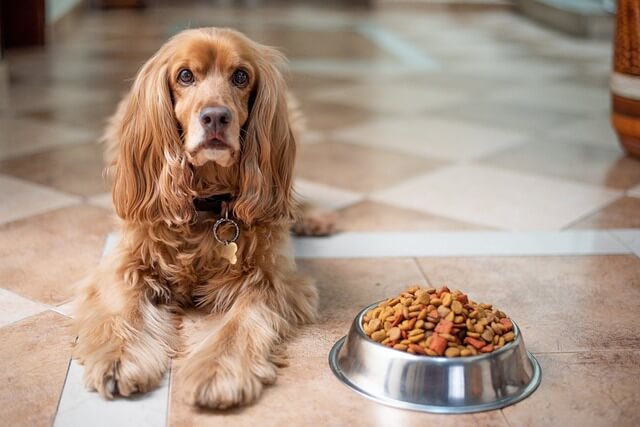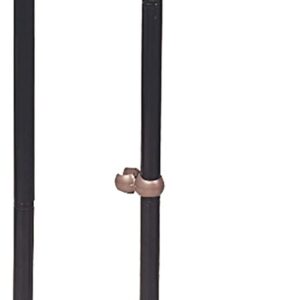21 Dangerous Foods Your Dog Should Never Eat

Dogs are wonderful creatures, and for many of us, they are more than just pets; they are family members. As pet owners, it is our responsibility to keep our furry friends safe and healthy. One way we can do this is by being mindful of what we feed them. While some human foods are perfectly safe for dogs to eat, others can be dangerous and even fatal.
We will discuss 21 dangerous foods that your dog should never eat. We will also explain why these foods are harmful and what you can do to keep your pet safe.
Dangerous Foods
1) Chocolate
Chocolate contains a chemical called theobromine, which is toxic to dogs. The darker the chocolate, the more theobromine it contains. Symptoms of chocolate poisoning in dogs include vomiting, diarrhea, seizures, and even death. If you suspect that your dog has eaten chocolate, contact your vet immediately.
2) Xylitol
Xylitol is a sugar substitute that is often used in sugar-free gum, candy, and other sweets. While it is safe for humans to eat, it can be deadly for dogs. Xylitol can cause a rapid release of insulin, which can lead to hypoglycemia (low blood sugar). Symptoms of xylitol poisoning include vomiting, loss of coordination, seizures, and liver failure.
3) Grapes and Raisins
Grapes and raisins can cause kidney failure in dogs. Even a small amount can be toxic. Symptoms of grape or raisin toxicity include vomiting, diarrhea, and lethargy. If you suspect that your dog has eaten grapes or raisins, contact your vet immediately.
4) Onions and Garlic
Onions and garlic contain compounds that can damage dogs’ red blood cells and cause anemia. Symptoms of onion or garlic poisoning include vomiting, diarrhea, and lethargy. If your dog has consumed onions or garlic, contact your vet immediately.

5) Avocado
Avocado contains a substance called persin, which can be toxic to dogs in large quantities. Symptoms of avocado toxicity in dogs include vomiting, diarrhea, and pancreatitis.
6) Alcohol
Alcohol can cause serious harm to dogs. Even small amounts can cause vomiting, diarrhea, breathing difficulties, and in severe cases, coma or death. If you suspect that your dog has consumed alcohol, contact your vet immediately.
7) Macadamia Nuts
Macadamia nuts can cause lethargy, vomiting, hyperthermia, and tremors in dogs. While the exact cause of macadamia toxicity in dogs is not known, it is best to avoid feeding them to your pet.
8) Caffeine
Caffeine can cause restlessness, rapid breathing, heart palpitations, muscle tremors, and seizures in dogs. If your dog has consumed caffeine, contact your vet immediately.
9) Cooked Bones
Cooked bones can splinter and cause damage to a dog’s digestive tract. They can also get stuck in the throat or intestine, leading to serious health problems. It is best to avoid feeding cooked bones to your dog.
Also Read: 7 Tips That Will Save You Money as a Pet Parent
10) Fat Trimmings
Fat trimmings can cause pancreatitis in dogs. Symptoms of pancreatitis include vomiting, diarrhea, and abdominal pain. It is best to avoid feeding your dog fat trimmings.
11) Salt
Excessive salt intake can lead to dehydration, vomiting, diarrhea, seizures, and even death in dogs. It is best to avoid giving your dog salty foods.
12) Nutmeg
Nutmeg contains a compound called myristicin, which can cause hallucinations, disorientation, increased heart rate, and seizures in dogs. It is best to avoid feeding your dog foods that contain nutmeg.
13) Raw Dough
Raw dough can rise and expand in a dog’s stomach, causing abdominal pain, vomiting, and bloating. The yeast in the dough can also produce alcohol, which can lead to alcohol poisoning. It is best to avoid giving your dog raw dough.
14) Fatty Foods
Fatty foods can cause pancreatitis in dogs. Symptoms of pancreatitis include vomiting, diarrhea, and abdominal pain. It is best to avoid feeding your dog fatty foods, such as bacon and butter.
15) Milk and Dairy Products
Many dogs are lactose intolerant, which means they cannot digest milk and other dairy products. Consuming milk and dairy products can cause diarrhea, vomiting, and other digestive issues in dogs.
16) Bones from Fish, Poultry, and Meat
Bones from fish, poultry, and meat can splinter and cause damage to a dog’s digestive tract. They can also get stuck in the throat or intestine, leading to serious health problems. It is best to avoid feeding bones to your dog.
17) Raw Meat and Fish
Raw meat and fish can contain bacteria, such as Salmonella and E. coli, that can cause food poisoning in dogs. It is best to cook all meat and fish before giving it to your dog.
18) Nuts
Some nuts, such as almonds and pecans, can cause digestive problems in dogs. Macadamia nuts, as mentioned earlier, are particularly dangerous and can cause lethargy, vomiting, hyperthermia, and tremors in dogs. It is best to avoid feeding your dog nuts.
19) Avocado
As mentioned earlier, avocado contains a substance called persin, which can be toxic to dogs in large quantities. Symptoms of avocado toxicity in dogs include vomiting, diarrhea, and pancreatitis.
20) Human Medications
Many human medications can be toxic to dogs. Painkillers, such as ibuprofen and acetaminophen, can cause liver and kidney damage in dogs. Antidepressants and anti-anxiety medications can cause lethargy, disorientation, and seizures in dogs. It is important to keep all human medications out of reach of your dog.
21) Sweeteners
In addition to xylitol, other sweeteners, such as erythritol and stevia, can be toxic to dogs. Symptoms of sweetener toxicity include vomiting, diarrhea, and lethargy. It is best to avoid giving your dog foods and treats that contain sweeteners.

What To do if Your dog has eaten dangerous food ?
If your dog has eaten a dangerous food, it is important to act quickly to minimize the potential harm. Here are some steps you can take:
- Contact Your Veterinarian: If you suspect that your dog has eaten a dangerous food, contact your veterinarian immediately. They can advise you on what steps to take next and may recommend bringing your dog in for treatment.
- Watch for Symptoms: Keep an eye on your dog for any signs of illness or distress, such as vomiting, diarrhea, lethargy, or difficulty breathing. If your dog displays any of these symptoms, seek veterinary attention immediately.
- Provide First Aid: Depending on the type of food your dog has ingested, there may be some steps you can take at home to help minimize the harm. For example, if your dog has eaten chocolate, you may be able to induce vomiting with hydrogen peroxide (under veterinary guidance). However, it is important to note that not all foods can be treated with home remedies, and some remedies can actually make the situation worse.
- Prevent Future Incidents: To prevent your dog from eating dangerous foods in the future, it is important to keep all human food out of their reach. Store food securely, and do not leave any food unattended where your dog can access it. Educate yourself on what foods are safe for dogs and avoid feeding your dog anything that could be harmful.
By being proactive and responsible, you can help keep your dog safe and healthy.
Check Out 5 Common Signs of Stress in Dogs and Cats
Where to Buy Healthy Dog Food ?
When it comes to buying food for your dog, there are several options available to you. Here are some of the most common places to purchase dog food:
- Pet Stores: Pet stores, such as Petco and Petsmart, carry a wide variety of dog food brands and types. You can usually find dry kibble, wet food, raw food, and even frozen food options. Many pet stores also have knowledgeable staff who can help you choose the right food for your dog’s needs.
- Online Retailers: There are many online retailers that specialize in pet food, such as Chewy and Amazon. These retailers often offer a wider variety of brands and types of dog food than physical stores, and many offer auto-ship options for convenience.
- Supermarkets and Grocery Stores: Many supermarkets and grocery stores carry dog food, usually in the pet care section. However, the selection may be more limited compared to pet stores.
- Veterinarian Offices: Some veterinarian offices carry dog food for sale, often specializing in prescription diets for dogs with specific health needs.
When choosing where to buy your dog’s food, it is important to consider the quality of the food, the price, and the convenience of the location. It is also important to consider your dog’s individual dietary needs, such as their age, weight, and health conditions, and choose a food that is appropriate for them. If you have any questions or concerns about your dog’s diet or nutrition, it is best to consult with your veterinarian.
Conclusion
As pet owners, it is our responsibility to keep our dogs safe and healthy. While it can be tempting to share human food with our furry friends, it is important to be mindful of what we feed them. Some human foods can be toxic and even fatal to dogs.
If you suspect that your dog has consumed any of the foods listed above or is exhibiting any symptoms of poisoning, contact your vet immediately. By being aware of the dangers of certain foods and taking the necessary precautions, we can help ensure that our dogs live long and healthy lives.
Disclaimer: This article may contain affiliate links to products. All product details reflect the price and availability at the time of publication. We may receive a commission for purchases made through these links.



